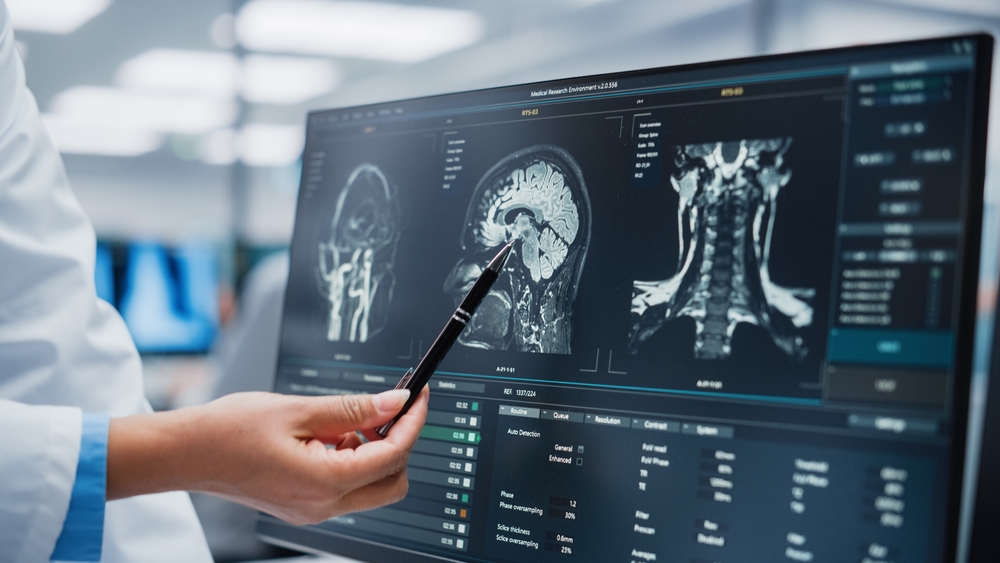Future-proofing the NHS: tackling workforce challenges and digital transformation

With waiting lists and staff shortages prompting claims of a “broken” NHS, leveraging advanced technologies will be critical to future-proof the health service, writes Stephen McMillan, Solutions Leader at Philips UK & Ireland and Europe.
The future of the UK health system, including the NHS, hinges on addressing unprecedented staff shortages. These challenges, exacerbated by the COVID-19 pandemic and compounded by an ageing and growing population, are projected to result in a shortfall of up to 360,000 staff by 2037, without decisive action.
The pressures of the crisis are taking a significant toll on the health and wellbeing of already overstretched staff. According to the Philips UK Future Health Index, UK healthcare professionals face some of the highest levels of burnout, with 80 per cent of leaders reporting increased incidences of burnout, stress and mental health issues among staff, compared to 41 per cent globally. Concurrently, the 2024 Lord Darzi report warns that the NHS is in “serious trouble” and only in the “foothills of digital transformation.”
Technology has the power to transform care delivery and support the workforce. By enabling staff to work more efficiently, equipping them with data-driven tools to make informed decisions, and creating space and time to focus on high-quality patient-centred care, it has the potential to make their jobs easier.
Leaders are already recognising this shift, with the Future Health Index highlighting the critical role of advanced technologies – such as automation, artificial intelligence, virtual care and data-driven insights – in future-proofing healthcare delivery and workforce sustainability.
Redefining workflows through automation
Healthcare leaders acknowledge that automation is critical for saving time and improving productivity, reducing pressures on an overstretched workforce. In practice, we’re seeing how automation can help to streamline workflows for staff – reducing administrative burdens, optimising resource allocation, and enhancing clinical efficiency.
For patients, automation isn’t just about efficiency – it’s about comfort and reassurance. At Royal Cornwall Hospital, a new 21st century scanning suite was created with patients in mind. It includes two state-of-the-art MRI scanners, fitted with ambient experience technology to reduce anxiety and provide positive distraction to patients during scans. Automated elements in the scanner complement this, giving information and guidance to patients, as well as providing updates on how long they have left.
Extending care through virtual tools
Healthcare leaders also recognise that virtual care technologies can help to ease staffing pressures, with respondents to the Future Health Index survey citing benefits such as more flexible work schedules for clinicians (62 per cent) and added capacity to serve patients (51 per cent). Virtual support technology can extend the reach of specialist care and help healthcare professionals get the most out of digital health technology.
A 12-month pilot of virtual support technology at Imperial College NHS Trust demonstrated the potential to enhance efficiency and improve the patient and staff experience. Remote training, enabled by the technology, reduced scan times, doubled cardiac MR training capacity, and increased patient throughput by 91 per cent during evening shifts.
Connecting patient data across settings
Embracing data presents a significant opportunity to advance patient care – but in the Future Health Index, more than half (56 per cent) of leaders reported that staff lose time accessing or integrating data. The same amount say that staff have to repeat tests and scans due to data inefficiencies.
A focus on improving data accuracy and interoperability is needed – especially as 94 per cent of healthcare leaders said that they experience data integration challenges that are impacting care. Open, cloud-based digital platforms will form the backbone for connecting patient data across settings, with open data standards promoting greater interoperability. But substantial improvement is needed if we are to move towards more joined-up, integrated care for patients.
Maximising AI to turn data into actionable insights
AI is helping to turn data into actionable insights at the point of care. It has made significant advancements in healthcare and is increasingly finding its way into clinical practice. Leaders recognise the power of AI to increase efficiency, improve staff experience and deliver better care.
In fact, the Future Health Index found that over the next three years, leaders plan to invest in AI for clinical decision support, notably in radiology (37 per cent), remote patient monitoring (35 per cent) and medication management (31 per cent). Leveraging AI’s capabilities can help to enhance the precision and personalisation of care, optimise decision-making, and ensure resources are deployed where they are most needed.
Scaling innovation through partnerships
Embracing technologies like AI, automation, and virtual care is no longer optional but essential for creating a sustainable and efficient NHS. However, successful implementation depends on robust training, financial investment, and building trust among staff to drive adoption. Achieving sustained digital transformation will require moving beyond isolated innovations to a collaborative, system-wide approach.
Public-private partnerships are key to scaling advancements, providing access to cutting-edge technologies and expertise while addressing financial barriers. These collaborations can help ensure innovations are implemented effectively, improving efficiency and enhancing care delivery in community settings. Together, we can future-proof the NHS. Let’s start the conversation – get in touch to explore how.
